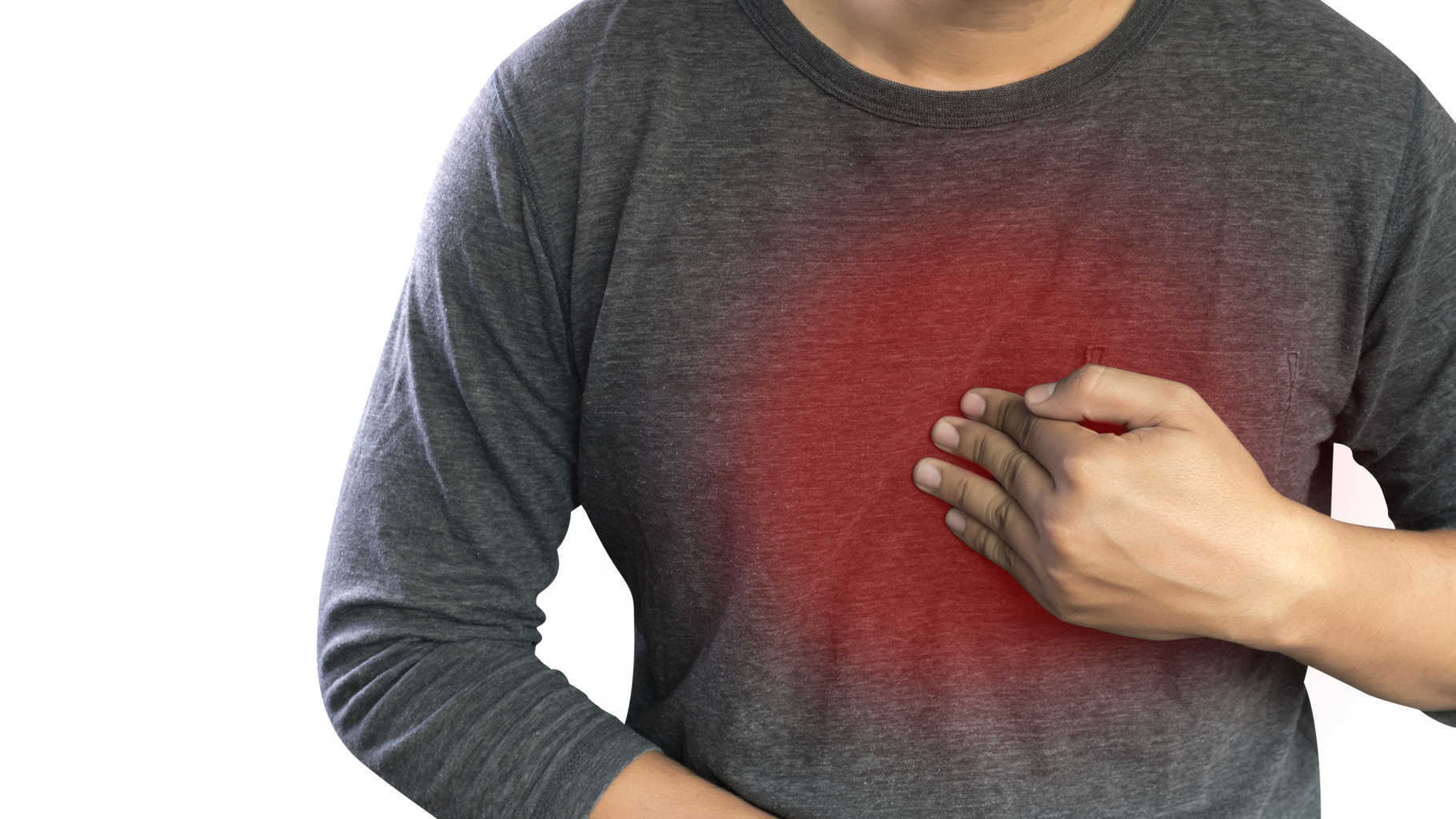
[cmamad id=”6835″ align=”center” tabid=”display-desktop” mobid=”display-desktop” stg=””]
If you want to solve health issues, you need to get to the right problem first.
And then you can fix it.
A good example is an acid reflux or GERD, which I’m going to talk about today.
GERD affects maybe 50% of men.
Most people know it as acid reflux, acid indigestion, or heartburn, some call it esophageal reflux.
They don’t think too much of it most of the time.
It’s ignored until someone experiences chest pain from acid reflux and upset stomach too often.
But if it’s a chronic condition can result in a hiatal hernia and chemical erosion of the esophagus.
The causes of acid reflux have always been that chemicals from the stomach.
Specifically, excess HCl overcomes the valve that separates the stomach from the esophagus.
And of course, the idea is that the acids burn the esophagus.
This chemical burn theory was thought to be responsible for GERD.
However, when they measured the amount of acid reaching the esophagus, it wasn’t nearly enough to cause a chemical burn.
It was not even much at all. That’s what this amazing study shows.

If you look at the people involved in this research, they are pretty heavy-duty researchers, physicians, and professors.
All these people are specialists in acid reflux.
All these people believed in the “chemical burn” theory of acid reflux at one time.
But they realized that there was something wrong with their theory.
So in this study, they stopped patients from taking protein pump inhibitor drugs.
These PPI drugs are commonly prescribed for GERD today.
[cmamad id=”4574″ align=”center” tabid=”display-desktop” mobid=”display-desktop” stg=””]
And the researchers observed the changes after the patients stopped the medications.
These:

And they found that within a week or two, these patients got all of their terrible GERD symptoms back.
The symptoms came back even though they didn’t have any excess stomach acid in their esophagus.
So the entire theory for GERD was turned on its head.
I believe that a lot of GERD is caused by stomach acid levels that are too low rather than too high.
The protein pump inhibitors address GERD from an inflammation standpoint and have nothing much to do a stomach acid.
Plus, these protein pump inhibitor drugs cause a lot of damage and should probably be banned.
Because the bottom line is these people with GERD got all their symptoms back.
And it happened without enough excess stomach acid in the stomach to create that chemical burn.
What excess acid there was didn’t last long enough to cause the problem either.
So, what’s the new theory of GERD?
GERD is an inflammatory response.
Anything that causes GERD also causes inflammation everywhere in the body.
But what do you do now?
You might want to try alternatives to fixing GERD.
One thing to try is increasing CO2 levels in the body through bag breathing.
Or you could take thiamine supplements.
You might want to change your diet and remove foods that are causing gut inflammation.
And you might want to talk to your doctor about strategies to get off of your protein pump inhibitor medication.
They’re damaging to your long-term health.
One medication that isn’t harmful like these PPIs is famotidine, the older medication available as Pepcid AC.
But it is always good to use these as a stopgap measure while your nutritional and supplement strategies and lifestyle changes kick in.

http://jamanetwork.com/journals/jama/fullarticle/2521970

Leave a Reply